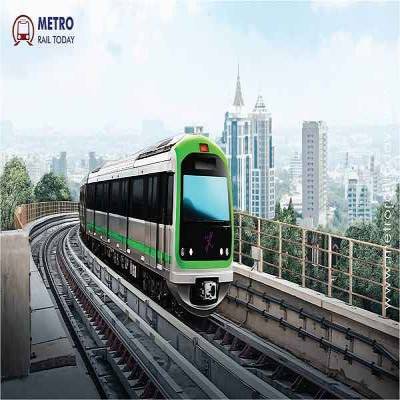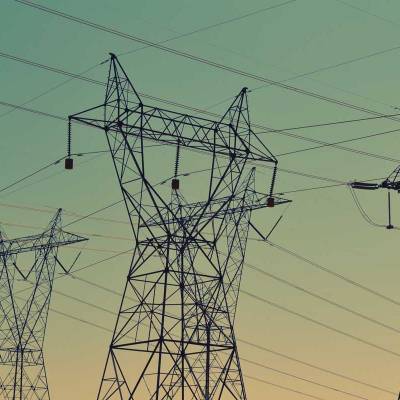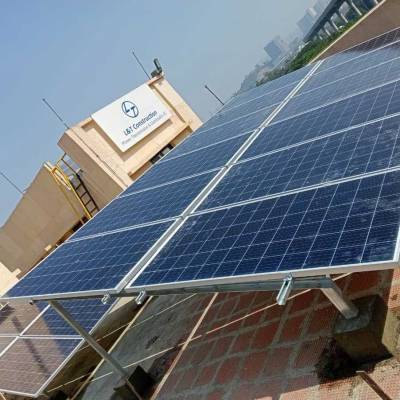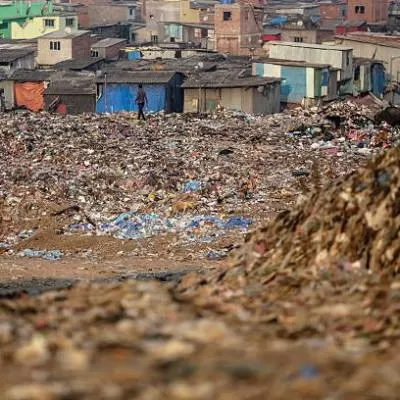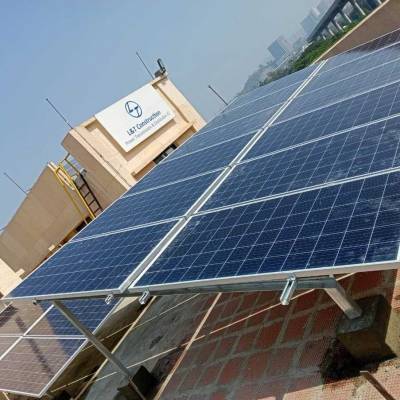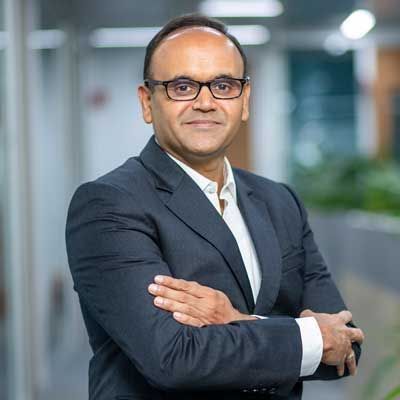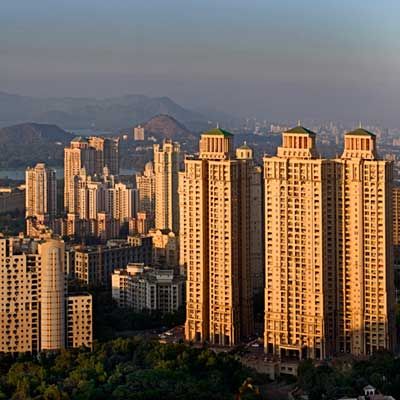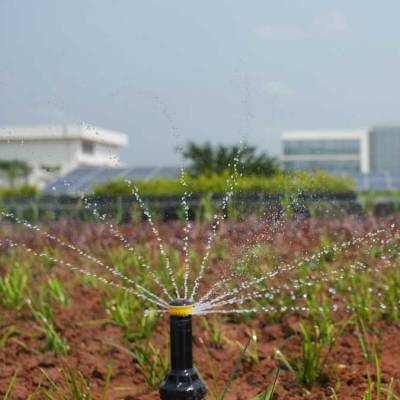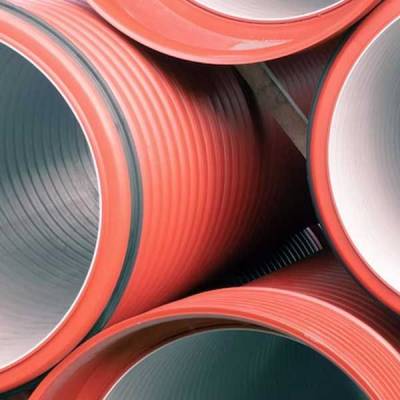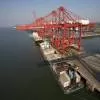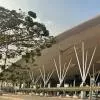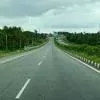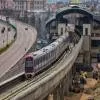- Home
- Infrastructure Urban
- WATER & WASTE
- Tenders for smart water meters are likely to be invited soon, says Debashis Sen, Chairman, New Town Kolkata Development Authority

Tenders for smart water meters are likely to be invited soon, says Debashis Sen, Chairman, New Town Kolkata Development Authority

Please introduce us to the successful projects that have played a key role in the city achieving the green tag.
With respect to innovation, special mention needs to be made of water ATMs (now three in Eco Park), bamboo railings for medians, 'tall tree nursery' (a JV of WBHIDCO and Forest Department Corporation) and 'pocket forests'. Under IT, special mention must be made of GPS-based vehicle tracking for effective solid waste management, automatic controls for all street lights and e-governance (property tax, certificates, building plans, etc, all are done online in New Town). In case of sustainable mobility, e-Buses (now three) were considered for the rating.
New Town has also been recognised as a solar city. Tell us about the city's solar initiatives. What is the total estimated power consumption in the city that is fulfilled through solar energy?
New Town has received approval from the Ministry of New and Renewable Energy. The objective is to reduce dependence on fossil fuels by making interventions in a phased manner over five years. A canal-top solar project has been built to supply 500 kW to Eco Park. A floating solar plant producing 10 kW has been built on a city lake. Government buildings have rooftop, net-metered solar plants. Building laws provide that large buildings must make 2 per cent of their energy consumption from renewable sources. Emphasis is also given to energy-efficient appliances. A majority of the street lights use efficient LED lights. Automatic timers reduce waste by switching on and switching off, as per astronomy clock. Pilot schemes that use motion sensors to turn on lights only when people or vehicles are in the vicinity have been implemented.
With regards to the Government's smart city programme, what is NKDA's next step in terms of infrastructure development?
Will any tenders be floated in coming months? It is one of the 100 smart cities of India. New Town is perhaps the only city in the country to have a dedicated JV corporation to lay optical fibre cable ducts everywhere. It is among the few cities to have a WiFi along the entire length of its 10-km Major Arterial Road to the airport. Pilots on smart electric meters have been made and tenders for smart water meters are likely to be invited by PHED soon.
Tell us about the steps being taken to improve the transportation systems in New Town to achieve efficient urban mobility and public transport.
Three air-conditioned electric buses are operating in New Town to improve connectivity in areas away from regular bus routes. The Airport-Garia Metro Link is expected to be commissioned in a few years' time and will be a game-changer in the field of mass public transportation. Electric vehicles, including electric three-wheelers, are encouraged and charging stations are being installed in various parts of New Town. We have introduced bike taxis and the dock-less public bicycle sharing scheme is now a huge hit. Parking apps are now available in all fee parking lots. Mixed development in urban planning and zoning laws have been introduced in the CBD area to make 'walk to work' more feasible.
Tell us about projects planned as part of the smart city.
For public information, LEDs, smart city apps, voluntary registration on SMS portal, web information as well as conventional methods like citizen meets are being undertaken. In addition, we are thinking of Kindle-like low power displays at bus stands for location-sensitive messages. Talks are on for using LoRA, NB-IoT and other low-power technologies for connecting citizens to the command and control centre, to be designed shortly.
Also, tell us about projects and tendering details, if any, being executed under government schemes such as AMRUT, Swachh Bharat and Housing for All.
AMRUT is for cities with populations of over 100,000 and New Town does not come within its purview. Clean city and Nirmal Bangla objectives are rigorously followed with mechanical sweepers, compactor machines and close supervision and imposition of fines for people found littering the streets or public places. Housing for All is also applicable to cities with a certain figure of population and New Town is not of them. Instead, we are building apartments for the economically weaker section. Till now, close to 5,000 such flats have already been built.
How much of the budget comes from the Centre and state governments, or any other body?
Services are provided by NKDA, which generates most of its funds internally through property taxes and other non-tax revenue such as building plans. Projects covered under the Green City Mission of the state are financed by the state government. HIDCO builds the large infrastructure projects and is independent of government grants, generating funds through land monetisation.
How is technology playing a key role in city development?
GPS-controlled compactors and road sweeping machines, WiFi on major roads, WiFi hotspots in public places, motion sensor-controlled street lights and water ATMs for coin-operated, pure water dispensing machines without plastic bottles are some examples. Additionally, we also have CCTVs and a control room in Eco Park, GPS-tracked shared public vehicles and a SCADA-controlled water treatment plant.
At present, what are the challenges faced in terms of city development and how is NKDA trying to overcome them?
There are many projects involved that require expertise and management skills, which is common across all big cities. There are no such extraordinary challenges as such, and usually fire NOCs, environment clearance, etc, have to be taken. Regular weekly meetings with the concerned authorities have helped us achieve good progress on ground. Slow occupancy of built-up dwelling units is an issue, followed by sold-out vacant plots. Gentle persuasion and constant touch with resident owners and imposition of fines for commercial institutions are beginning to give results.
On a concluding note, what would you point to as that one distinguishing feature that differentiates New Town Kolkata from other cities in the country?
It is a city that gives importance to the work-life balance. It is a city that excels in innovation, culture, recreation and technology. New Town is the only city that owns and runs a business club, cricket and football stadiums, convention centre of international repute, Eco Park and wax museum, Nazrul Tirtha and Rabindra Tirtha, eco-urban village and upasanasthal, children's park, seniors' park and sensory park for inclusive development. The latest additions, the Seven Wonders, Kolkata Gate and Bangla Misti hub, are also wildly popular among all.
New Town Kolkata
Total city area: 7,000 acre.
Population: 34,000 (estimated).
Year of establishment: 2008.
Municipal councillor: NKDA is governed by an Act of the Assembly and is controlled by its Board.
Annual budget: Rs.2.91 billion.
New Town Kolkata in West Bengal has been recognised as India's first green-rated satellite city. This apart, it is also listed as one of the top townships under the state government's green cities mission. Being a satellite city, it has vast areas of cultivable land and water bodies that have been developed in a planned manner. The civic body has also introduced waste management vehicles installed with GPS system, which help municipal officials to monitor whether the vehicles have performed their assigned task. Moreover, the city has introduced as many as 10 charging docks for electric vehicles, in all three action areas of the township. Apart from the 20 electric buses, these charging stations will also make battery-driven cars and bikes more popular. In fact, New Town has been recently awarded the Gold certification under the Indian Green Building Council's (IGBC) Green Cities Rating. Debashis Sen, Chairman, New Town Kolkata Development Authority (NKDA), and Chairman & Managing Director, West Bengal Housing Infrastructure Development Corporation, shares the city's plan with CW. Please introduce us to the successful projects that have played a key role in the city achieving the green tag. With respect to innovation, special mention needs to be made of water ATMs (now three in Eco Park), bamboo railings for medians, 'tall tree nursery' (a JV of WBHIDCO and Forest Department Corporation) and 'pocket forests'. Under IT, special mention must be made of GPS-based vehicle tracking for effective solid waste management, automatic controls for all street lights and e-governance (property tax, certificates, building plans, etc, all are done online in New Town). In case of sustainable mobility, e-Buses (now three) were considered for the rating. New Town has also been recognised as a solar city. Tell us about the city's solar initiatives. What is the total estimated power consumption in the city that is fulfilled through solar energy? New Town has received approval from the Ministry of New and Renewable Energy. The objective is to reduce dependence on fossil fuels by making interventions in a phased manner over five years. A canal-top solar project has been built to supply 500 kW to Eco Park. A floating solar plant producing 10 kW has been built on a city lake. Government buildings have rooftop, net-metered solar plants. Building laws provide that large buildings must make 2 per cent of their energy consumption from renewable sources. Emphasis is also given to energy-efficient appliances. A majority of the street lights use efficient LED lights. Automatic timers reduce waste by switching on and switching off, as per astronomy clock. Pilot schemes that use motion sensors to turn on lights only when people or vehicles are in the vicinity have been implemented. With regards to the Government's smart city programme, what is NKDA's next step in terms of infrastructure development? Will any tenders be floated in coming months? It is one of the 100 smart cities of India. New Town is perhaps the only city in the country to have a dedicated JV corporation to lay optical fibre cable ducts everywhere. It is among the few cities to have a WiFi along the entire length of its 10-km Major Arterial Road to the airport. Pilots on smart electric meters have been made and tenders for smart water meters are likely to be invited by PHED soon. Tell us about the steps being taken to improve the transportation systems in New Town to achieve efficient urban mobility and public transport. Three air-conditioned electric buses are operating in New Town to improve connectivity in areas away from regular bus routes. The Airport-Garia Metro Link is expected to be commissioned in a few years' time and will be a game-changer in the field of mass public transportation. Electric vehicles, including electric three-wheelers, are encouraged and charging stations are being installed in various parts of New Town. We have introduced bike taxis and the dock-less public bicycle sharing scheme is now a huge hit. Parking apps are now available in all fee parking lots. Mixed development in urban planning and zoning laws have been introduced in the CBD area to make 'walk to work' more feasible. Tell us about projects planned as part of the smart city. For public information, LEDs, smart city apps, voluntary registration on SMS portal, web information as well as conventional methods like citizen meets are being undertaken. In addition, we are thinking of Kindle-like low power displays at bus stands for location-sensitive messages. Talks are on for using LoRA, NB-IoT and other low-power technologies for connecting citizens to the command and control centre, to be designed shortly. Also, tell us about projects and tendering details, if any, being executed under government schemes such as AMRUT, Swachh Bharat and Housing for All. AMRUT is for cities with populations of over 100,000 and New Town does not come within its purview. Clean city and Nirmal Bangla objectives are rigorously followed with mechanical sweepers, compactor machines and close supervision and imposition of fines for people found littering the streets or public places. Housing for All is also applicable to cities with a certain figure of population and New Town is not of them. Instead, we are building apartments for the economically weaker section. Till now, close to 5,000 such flats have already been built. How much of the budget comes from the Centre and state governments, or any other body? Services are provided by NKDA, which generates most of its funds internally through property taxes and other non-tax revenue such as building plans. Projects covered under the Green City Mission of the state are financed by the state government. HIDCO builds the large infrastructure projects and is independent of government grants, generating funds through land monetisation. How is technology playing a key role in city development? GPS-controlled compactors and road sweeping machines, WiFi on major roads, WiFi hotspots in public places, motion sensor-controlled street lights and water ATMs for coin-operated, pure water dispensing machines without plastic bottles are some examples. Additionally, we also have CCTVs and a control room in Eco Park, GPS-tracked shared public vehicles and a SCADA-controlled water treatment plant. At present, what are the challenges faced in terms of city development and how is NKDA trying to overcome them? There are many projects involved that require expertise and management skills, which is common across all big cities. There are no such extraordinary challenges as such, and usually fire NOCs, environment clearance, etc, have to be taken. Regular weekly meetings with the concerned authorities have helped us achieve good progress on ground. Slow occupancy of built-up dwelling units is an issue, followed by sold-out vacant plots. Gentle persuasion and constant touch with resident owners and imposition of fines for commercial institutions are beginning to give results. On a concluding note, what would you point to as that one distinguishing feature that differentiates New Town Kolkata from other cities in the country? It is a city that gives importance to the work-life balance. It is a city that excels in innovation, culture, recreation and technology. New Town is the only city that owns and runs a business club, cricket and football stadiums, convention centre of international repute, Eco Park and wax museum, Nazrul Tirtha and Rabindra Tirtha, eco-urban village and upasanasthal, children's park, seniors' park and sensory park for inclusive development. The latest additions, the Seven Wonders, Kolkata Gate and Bangla Misti hub, are also wildly popular among all. New Town Kolkata Total city area: 7,000 acre. Population: 34,000 (estimated). Year of establishment: 2008. Municipal councillor: NKDA is governed by an Act of the Assembly and is controlled by its Board. Annual budget: Rs.2.91 billion.


